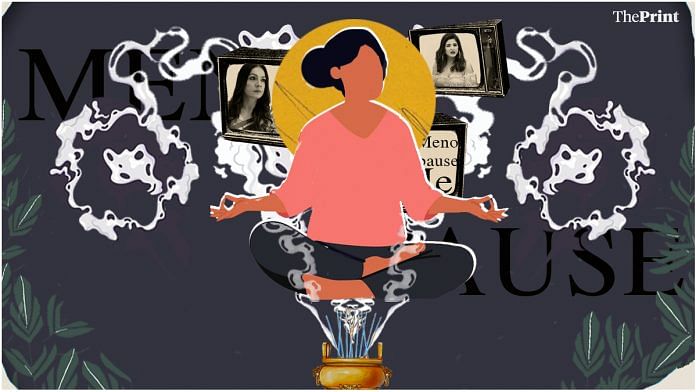Menopause is a very emotional and physically confusing time. Hot flashes, weight fluctuations, and mood swings are just some of the many symptoms a woman faces on entering menopause. So, when the skin starts acting up, they are just about ready to throw in the towel. But you can navigate this stage of your life. After all, 25 million women in India go through menopause every year and no one should feel isolated while going through a permanent life change.
What happens to our skin during menopause?
Menopause is the natural biological process that marks the end of a woman’s menstrual cycle, starting in the 40s and concluding in her 50s. During this process, the change in the level of hormones affects the skin.
There is a rapid decrease in the collagen levels of the skin and elastin degeneration. Nearly a third of the skin collagen is lost within the first five years after menopause This can lead to a number of skin aberrations.
Flushing: In addition to getting “hot flashes”, flushing is the sudden vasodilation of blood vessels present in the topmost layer of the skin, which makes one go pink. Around 75 per cent of women who are in the menopausal age bracket experience this. In some cases, flushing leads to exaggerating another pre-condition known as rosacea.
Treatment for flushing includes estrogen therapy, prescription medication, and behavioural therapy such as paced respiration training (deep breathing to a count) and relaxation response training (a meditative process aimed to calm down the body).
Eczema, pruritis, dermatitis: A large observational study showed that women reported dermatitis, eczema, and other skin eruptions around menopause. While the exact cause can’t be ascertained, literature points toward the water loss and degenerating skin barrier due to hormonal fluctuation.
One of the ways to avoid pruritis is to keep nails short, reduce overall bathing time, use humidifiers, avoid irritants including exfoliating soaps, and use a low pH emollient (a substance used to soften and hydrate the skin).
Also read: Indian women are breaking the silence on menopause. Retreats, start-ups, diets rise
Acne: Due to the imbalance in hormones, acne (normally affecting teenagers) is recognised in adults. The most common types of acne include open and closed comedones, which are small bumps typically found on the forehead and chin caused by pore blockage from dirt, along with papules (cystic skin lesions) and pustules (pus-filled bumps surrounded by inflammatory skin). Regular dermatology-approved treatments such as topical steroid treatment and isotretinoin show promising results in these cases.
Dryness, itching: The reduction in estrogen levels also means the skin’s natural hydration booster isn’t as effective anymore, causing dryness and itching all over the body. In some instances, these symptoms may indicate an underlying condition like hypothyroidism.
Regularly applying moisturisers, particularly after bathing, is one way to retain the hydration. Avoid using soaps to minimise skin irritation.
Facial hair: The growth of facial hair is fairly common among women experiencing menopause. Almost 40 per cent of women aged 45 notice new, thicker hair growth, particularly on the chin. With the decline in estrogen levels during menopause, there is an increase in testosterone, leading to heightened hair growth along the jawline, upper lip, and cheeks. Hormonal replacement therapy (HRT) can mitigate excessive hair growth.
Additionally, incorporating Omega-3 and vitamin B-rich foods into your diet supports skin health during menopause. Foods such as fatty fish, avocado, chia seeds, and flax seeds are beneficial.
Sometimes the treatment is the cause.
While hormone replacement therapy (HRT) is often recommended as the primary treatment for systemic menopausal symptoms, it’s important to note potential cutaneous side effects such as hirsutism (abnormal hair growth), acne, and androgenic alopecia (abnormal hair loss due to hormonal disorders).
This shouldn’t discourage you from seeking support during menopause. Instead, it would help adjust your dosage and prescription for a more effective treatment plan.
Menopause is not solely a women’s issue; its impact extends to families and society at large. Organisations such as the Indian Menopause Society offer support and resources to women navigating menopausal changes. It is time for us to recognise the broader societal implications of hormone-related processes and disorders and find out how we can all benefit from providing appropriate treatment and support to those in need.
Dr Deepali Bhardwaj is a dermatologist, anti-allergy specialist, laser surgeon and internationally trained aesthetician. She tweets @dermatdoc. Views are personal.
(Edited by Prashant)




Thank doctor for your valuable information
Menopause needs to be dealt with dignity. Professional advice as in this article by Dr Bhardwaj can help a lot.